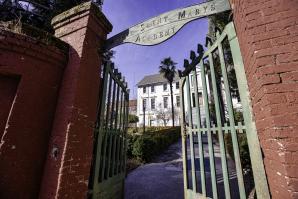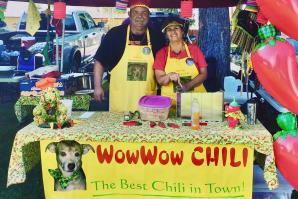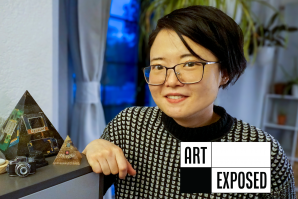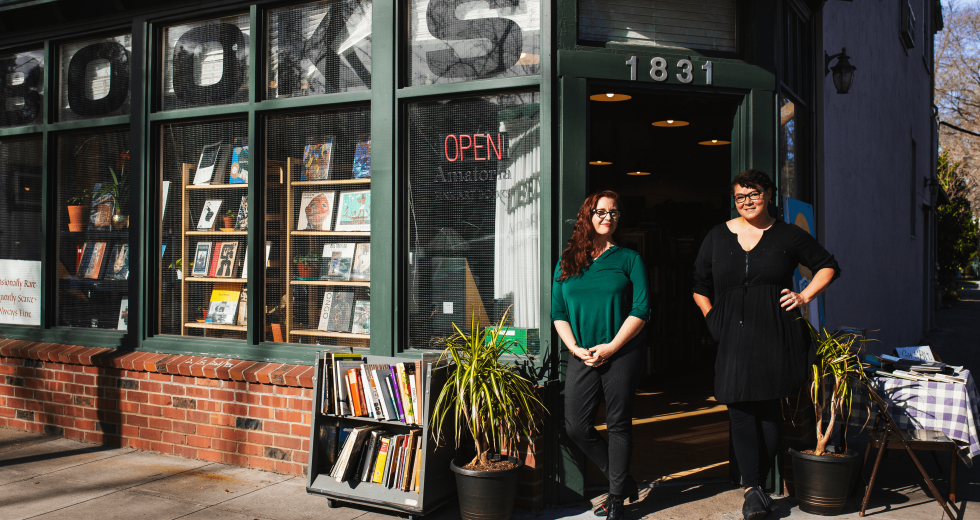You might be surprised to learn that independent bookstores are making a comeback. One reason is that during the pandemic, a significant slice of the population rediscovered their love for vinyl records and the satisfaction of holding a good book in their hands. Another reason is that people are sick of their devices, and books are the antidote.
Sacramento County is home to over 15 independent bookstores, and all of them serve a unique purpose in their respective neighborhoods. A Seat At The Table Books in Elk Grove is an LGBTQ+-focused shop with a dedicated space for kids with learning differences. Capital Books downtown is a generalist bookstore, but it also has a sci-fi and gaming room, and our store, Amatoria Fine Art Books, is dedicated to the creative pursuits.
All these stores carry vastly different inventory; they have their own channels of acquisition, their own customer base, each one of them their own micro-culture. Booksellers understand this and so, rather than competing, we work collaboratively to foster a healthy local literary culture. Many of the beautiful collectible books we carry at Amatoria came to us because one of our fellow booksellers referred someone to us. Conversely, we don’t carry self-help or psychology, but Crawford’s Books does, so we send folks to them. There is a bit of an unspoken code among booksellers: our job is to help the person find their book, period.
The truly marvelous thing about the Great Circle of the Book is that it extends well beyond the retail sphere. Thank goodness for the local librarians who are delighted to help us research an obscure copy of Jane Austen. The Friends of the Sacramento Library help us with everything from donations to rare book repairs. We have great relationships with teachers at American River College and their publishing arm, Ad Lumen Press. We collaborate on book releases and author talks. All our esteemed colleagues in the book trade are similarly plugged into their communities, making them a unique feature in their neighborhoods.
“Bookselling is a unique industry,” says Claire Bone, owner of Wild Sisters Book Company in East Sacramento, “where other industries compete for customers and unwavering loyalty to their business alone, bookstores exist in what I like to call “co-ompetition” or cooperative competition. Sure, we are technically competitors, but we all do better when we work with one another, refer customers, publishers and authors towards one another. We all succeed when we work together.”
Many of the 15+ independent bookstores in the Sacramento region like Wild Sisters are younger than 5 years old, and that is in keeping with the national trend: between 2020 and 2022, over 300 new independent bookstores opened their doors nationwide, and many of them were started by young people. During that time, existing businesses also reported noticeable increases in sales.
This is not to say bookstores aren’t vulnerable; they are usually among the first to be displaced by rising commercial rents. California’s complicated and ever-changing labor regulations make it difficult to hire and retain employees, just like any other small retailer. The public doesn’t really understand how big online companies sell books at a loss just to undercut small independent outfits like ours. And then there are the book jackers, speculator algorithms that create fake listings online in order to manipulate the value of a book so they can buy low and sell high.
Yeah, it’s rough out there.
But for the cynics who say that the printed book is going the way of the dodo, I reject that notion. Books, writing and art are the underpinning of civilization! It’s the imaginative act, and the record of that imagining, that produced all the human-made beauty in the world. And as technology inserts itself in increasingly invasive ways, there are more of us who are doubling down on basic human pleasures like reading and face-to-face conversation. I’m heartened anew every time a young person comes in and wants to talk about ancient Greek poetry.
In these times when teachers are thrust into the unreasonable position of defending a book’s right to be on the shelf or in the classroom, we should remember that the book is a vehicle for the open exchange of ideas, an emblem of our democracy. As booksellers, we believe that everyone should have a personal library, whether it’s a single shelf or a whole room.
It’s this kind commitment to the book ecosystem here in Sacramento that produced greats; Joan Didion, Cornel West, LaVar Burton and Greta Gerwig all grew up here, after all. Whether you love to read about trees or California history, or Ray & Charles Eames, there is a bookstore here in your town that has that book. By purchasing that book in your neighborhood and putting it on your shelf, you are benefiting from, and contributing to, the Great Sacramento Circle of the Book.
Stay up to date on business in the Capital Region: Subscribe to the Comstock’s newsletter today.
Recommended For You

Musings on Happiness, Leadership and the Promises of Spring
Comstock’s President and Publisher Winnie Comstock-Carlson muses on collective happiness and hopes for renewed vibrancy in spring.

Grass Valley Museum Tells Untold History of Women During the Gold Rush
Industrious nuns, international stars and well-educated orphans
In a county known for its wealth of Gold Rush-era museums, undoubtedly some of the most compelling stories from that time reside at a former orphanage hidden within the 160-year-old walls of the Grass Valley Museum.

What Women Bring
Women reflect on their road to leadership
These women’s paths have led them to positions of influence in their fields, and in some cases, they’ve made history in their roles.

The Chiliheads of Sacramento
National chili competitions are the spice of life for Capital Region retirees — including the founders of Jimboy’s
We’re like a biker gang, but we make chili,” says competitive chili cook Toni Groth, who travels across the country with her husband Mark to fight for the title of World’s Best. Plus, Jimboy’s gives us the chili scoop.

Art Exposed: Muzi Li Rowe
This mixed media artist and photographer explores culture through defunct technology
Whether it’s layers of tiny microchips or rows of dead batteries, each work in Muzi Li Rowe’s Magical Thinking series is like peering into a tiny museum where the most microscopic parts of now-defunct personal technology devices, from old Nokia flip phones to disposable cameras, become individual hallmarks of consumer culture.



